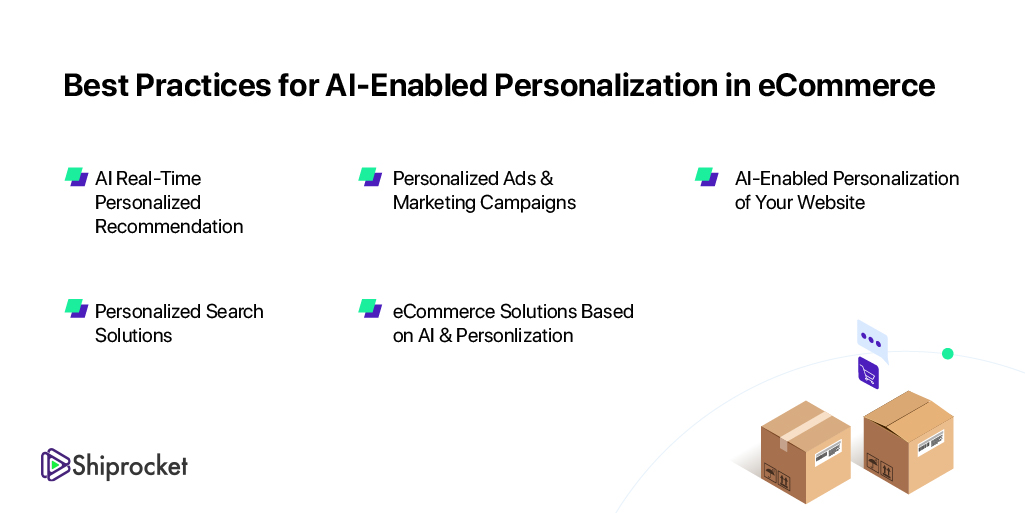
Understanding the Omnichannel Approach
In today’s fast-paced digital world, customers expect a seamless and consistent brand experience, regardless of how they choose to interact with a business. Omnichannel retail is the answer. It’s about creating a unified shopping experience that integrates all sales channels – online, mobile, social media, brick-and-mortar stores, and even catalog – into a single, cohesive whole. Forget the siloed approach of the past; omnichannel is about breaking down those walls and offering a truly integrated journey for each customer.
The Benefits of a Seamless Shopping Experience
For businesses, the rewards of a well-implemented omnichannel strategy are substantial. Increased customer loyalty is a major win. When customers feel valued and understood across all touchpoints, they’re more likely to return and become repeat buyers. Higher customer lifetime value naturally follows. Furthermore, improved customer satisfaction translates into positive word-of-mouth marketing, a powerful and cost-effective way to grow your business. And finally, the ability to gather comprehensive customer data across all channels provides invaluable insights for targeted marketing and improved product development.
Key Features of a Successful Omnichannel Strategy
Several key elements contribute to a truly seamless shopping experience. Firstly, consistent branding across all channels is crucial. Your logo, messaging, and overall brand aesthetic should be recognizable and consistent wherever the customer interacts with your business. Secondly, unified inventory management is essential. Customers should be able to see real-time stock levels, regardless of whether they’re shopping online or in-store. This eliminates frustrating situations where an item is shown as “in stock” online, only to be unavailable in the store. Finally, integrated customer service is vital. Customers should be able to contact your business via their preferred channel – phone, email, chat – and receive consistent, helpful support regardless of where their initial interaction occurred.
Technology’s Role in Omnichannel Success
Technology plays a pivotal role in enabling a seamless omnichannel experience. A robust Customer Relationship Management (CRM) system is crucial for managing customer data across all channels and providing a personalized shopping journey. Integrated e-commerce platforms, point-of-sale (POS) systems, and inventory management software are essential for streamlining operations and ensuring accurate information flows across all touchpoints. Furthermore, mobile apps and responsive websites are paramount for providing an optimal shopping experience on various devices. Investing in these technologies is not just an expense, it’s a strategic investment in customer satisfaction and business growth.
Personalization and the Omnichannel Customer
One of the biggest advantages of omnichannel is the ability to personalize the customer experience. By tracking customer interactions across all channels, businesses can build a comprehensive profile of each shopper, understanding their preferences, purchase history, and browsing behavior. This allows for targeted marketing efforts, personalized product recommendations, and customized offers, enhancing the overall shopping journey and fostering a stronger customer relationship. Personalized emails, targeted social media ads, and in-store promotions based on individual customer data can significantly increase conversion rates and customer lifetime value.
Overcoming Omnichannel Challenges
Implementing a successful omnichannel strategy isn’t without its challenges. One significant hurdle is integrating disparate systems and data sources. This often requires significant investment in technology and integration expertise. Another challenge is managing inventory across multiple channels, ensuring that stock levels are accurately reflected and that orders are fulfilled efficiently. Moreover, providing consistent customer service across diverse channels requires careful planning, training, and the right technology. Overcoming these challenges requires a well-defined strategy, a commitment to investment, and a focus on providing a truly unified customer experience.
Measuring the Success of Your Omnichannel Strategy
Tracking key performance indicators (KPIs) is vital to measure the effectiveness of your omnichannel strategy. Metrics such as website conversion rates, average order value, customer acquisition cost, customer lifetime value, and customer satisfaction scores can provide valuable insights into the success of your efforts. Regularly analyzing these KPIs allows you to identify areas for improvement, optimize your processes, and ensure that your omnichannel strategy continues to deliver positive results. By continuously monitoring and adjusting your approach based on data analysis, you can ensure that your business is maximizing the benefits of a seamless omnichannel experience.
The Future of Omnichannel Retail
The future of omnichannel retail lies in further personalization and the integration of emerging technologies. Artificial intelligence (AI) and machine learning (ML) will play a larger role in personalizing the shopping experience, providing even more tailored recommendations and offers. Augmented reality (AR) and virtual reality (VR) will offer innovative ways to engage customers and provide immersive shopping experiences. The continued evolution of mobile technology will also shape the future of omnichannel, creating even more opportunities for personalized and seamless interactions with customers. Read also about the omnichannel strategy definition.


E-commerce Personalization: Tailoring Experiences
Personalization in e-commerce has become a cornerstone for businesses aiming to deliver unique and tailored experiences to their customers. By leveraging data insights and advanced technologies, e-commerce platforms can customize interactions, enhance customer satisfaction, and drive increased engagement and sales.
1. Understanding E-commerce Personalization
E-commerce personalization involves the customization of the online shopping experience based on individual user behavior, preferences, and demographics. It goes beyond merely recommending products; it encompasses personalized product suggestions, content, offers, and even website layouts tailored to meet the specific needs and desires of each customer.
2. Leveraging Data for Personalization
Data lies at the heart of e-commerce personalization. Utilizing customer data—such as browsing history, past purchases, location, and demographic information—allows e-commerce platforms to create personalized experiences. Advanced analytics and machine learning algorithms process this data to generate insights and patterns, enabling businesses to deliver highly targeted and relevant content to their customers.
3. Customized Recommendations and Suggestions
One of the primary features of e-commerce personalization is the provision of customized product recommendations. By analyzing a user’s behavior and preferences, algorithms can suggest products that align with their interests. These recommendations significantly enhance the shopping experience by presenting users with items they are more likely to be interested in, ultimately boosting conversion rates and customer satisfaction.
4. Personalized Marketing and Communication
Personalization extends to marketing efforts and communication strategies. E-commerce platforms utilize personalized emails, notifications, and advertisements to engage customers with content that resonates with their preferences. Tailoring marketing messages based on a customer’s past interactions enhances relevance and increases the likelihood of conversion.
5. Enhancing User Experience and Loyalty
E-commerce personalization plays a pivotal role in improving user experience and fostering customer loyalty. Tailored experiences make customers feel valued and understood, leading to increased satisfaction and trust in the brand. Moreover, personalized interactions contribute to building long-term relationships with customers, encouraging repeat purchases and fostering brand advocacy.
Integrating e-commerce personalization into business strategies has become a necessity in the competitive online marketplace. It’s not just about offering products; it’s about curating experiences that resonate with individual customers, creating a sense of connection and understanding.
For a deeper understanding of how E-commerce Personalization can transform your business, explore E-commerce Personalization and discover the tools and strategies driving personalized experiences in the online retail landscape.


AI-Driven Customer Service: Enhancing Experiences
AI-powered customer service has revolutionized the way businesses interact with their customers, offering efficient, personalized, and round-the-clock support. As artificial intelligence continues to evolve, its integration into customer service strategies proves instrumental in elevating customer experiences.
1. The Rise of AI in Customer Service
Artificial intelligence has reshaped customer service operations, providing automated solutions that cater to diverse customer needs. Chatbots, powered by AI algorithms, offer immediate assistance by understanding and responding to customer queries, improving response times and accessibility.
2. Personalized Customer Interactions
AI-driven customer service leverages machine learning to analyze customer data, enabling personalized interactions. By understanding past behaviors and preferences, AI systems can tailor recommendations, offers, and responses, enhancing customer satisfaction and loyalty.
3. Enhanced Efficiency and 24/7 Support
AI-powered systems offer businesses the advantage of uninterrupted service. With the ability to operate 24/7, AI-driven customer service ensures round-the-clock support, resolving inquiries and issues promptly regardless of time zones or business hours.
4. Data-Driven Insights for Improvements
The utilization of AI in customer service generates valuable insights from customer interactions. Analyzing this data helps businesses identify patterns, trends, and areas for improvement, allowing for the refinement of products, services, and support processes.
5. Human-AI Collaboration for Superior Service
While AI enhances efficiency, human touch remains invaluable in customer service. Combining AI capabilities with human intervention creates a symbiotic relationship, where AI handles routine tasks, freeing up human agents to focus on more complex issues requiring empathy and nuanced understanding.
The future of customer service is intricately woven with AI advancements. As AI continues to evolve, its integration will play an increasingly vital role in elevating customer experiences, driving business growth, and fostering long-term relationships between businesses and consumers.
For a comprehensive understanding of AI-powered Customer Service and its impact, visit AI-powered Customer Service to explore how businesses are transforming customer interactions using AI technologies, optimizing customer satisfaction and loyalty.
Categories
Recent Posts
- The Impact of Adolescent Residential Treatment Centers for Mental Health on Long-Term Stability
- Empowering Health Through a Diabetes App
- Assortment Planning 2.0: Balancing Data Science with Merchant Intuition
- Corporate Shuttle Services: A Competitive Edge for Employee Satisfaction and Retention
- Find Your Inner Peace A Sahaja Guided Meditation
- Schlage Century Smart Home Security, Simplified
- Unlocking Online Success Simple Marketing Tips
- Simple Ragdoll Cat Grooming for Beginners
- Experience the Future with [Product Name]
- Dance Theatre of Harlem A Stunning New Production
Partner
ecommerce web design dubai
ecommerce website development dubai
ecommerce website dubai
ecommerce development in dubai
ecommerce development company dubai
ecommerce development company in dubai
ecommerce development dubai
ecommerce website development companies in dubai
ecommerce website development company in dubai
ecommerce website development in dubai
ecommerce website design company near me
ecommerce website design company dubai
ecommerce web development dubai
web ecommerce development
ecommerce website in uae
ecommerce website design dubai
ecommerce web design agency
Partner
app design Dubai
app developers in dubai
app development companies in dubai
app development dubai
application development dubai
app developers uae
app development companies in uae
app development uae
mobile App designer Dubai
mobile App Development Company Dubai
mobile app development company in dubai
mobile app development dubai
mobile application dubai
mobile app development company in uae
mobile app development uae
mobile application development uae
mobile app development company
Partner
Hire Opencart Developers
Hire Zend Developers
Hire VueJs Developers
Hire Symfony Developers
Hire CodeIgniter Developers
Hire ExpressJs Developers
Hire Xamarin Developers
Hire JQuery Developers
Hire NextJs Developers
Hire WooCommerce Developers
Hire ReactJs Developers
Hire NodeJs Developers
Hire Laravel Developers
Hire Magento Developers
Hire Flutter Developers
Hire Swift Developers
Hire Angular Developers
Hire WordPress Developers
Hire IOS Developers
Hire Java Developers
Hire PHP Developers
Hire Hybrid App Developers
Hire Android Developers
Hire UIUX Designers
Hire Native App Developers
Hire JavaScript Developers
Offshore Developers
Hire Graphic Designers
Hire Net Developers
Hire Web Designers

